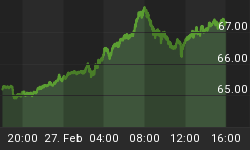As the US mainstream media obsessed last week about Russia's supposed "hacking" of the US elections and President Obama's final round of Russia sanctions in response, something very important was taking place under the media radar. As a result of a meeting between foreign ministers of Russia, Iran, and Turkey last month, a ceasefire in Syria has been worked out and is being implemented. So far it appears to be holding, and after nearly six years of horrible warfare the people of Syria are finally facing the possibility of rebuilding their lives.
What is so important about this particular ceasefire? It was planned, agreed to, and implemented without the participation of the United States Government.
In fact it was frustration with Washington's refusal to separate its "moderates" from terrorist groups and its continued insistence on regime change for the Syrian government that led the three countries to pursue a solution on their own for Syria. They also included the Syrian government and much of the opposition in the agreement, which the US government has been unwilling to do.
We have been told all along by the neocons and "humanitarian interventionists" that the United States must take a central role in every world crisis or nothing will ever be solved. We are the "indispensable nation," they say, and without our involvement the world will collapse. Our credibility is on the line, they claim, and if we don't step up no one will. All this is untrue, as we have seen last week.
The fact is, it is often US involvement in "solving" these crises that actually perpetuates them. Consider the 60-plus year state of war between North and South Korea. Has US intervention done anything to solve the problem? How about our decades of meddling in the Israel-Palestine dispute? Are we any closer to peace between the Israelis and Palestinians despite the billions we have spent bribing and interfering?
Non-intervention in the affairs of others does not damage US credibility overseas. It is US meddling, bombing, droning, and regime-changing that damages our credibility overseas. US obstruction in Syria kept the war going. As the Syrians and Russians were liberating east Aleppo from its four year siege by al-Qaeda, the Obama Administration was demanding a ceasefire. As Syrians began to move back into their homes in east Aleppo, the State Department continued to tell us that the Russians and Syrian government were slaughtering civilians for the fun of it.
So why all the media attention on unproven accusations of Russian hacking and President Obama's predictable, yet meaningless response? The mainstream media does the bidding of Washington's interventionists and they are desperate to divert attention from what may prove to be the beginning of the end of Syria's long nightmare. They don't want Americans to know that the rest of the world can solve its own problems without the US global policemen in the center of the action. When it is finally understood that we don't need to be involved for crises to be solved overseas, the neocons will lose. Let's hope that happens soon!
Buy Ron Paul's latest book, Swords into Plowshares, here.















